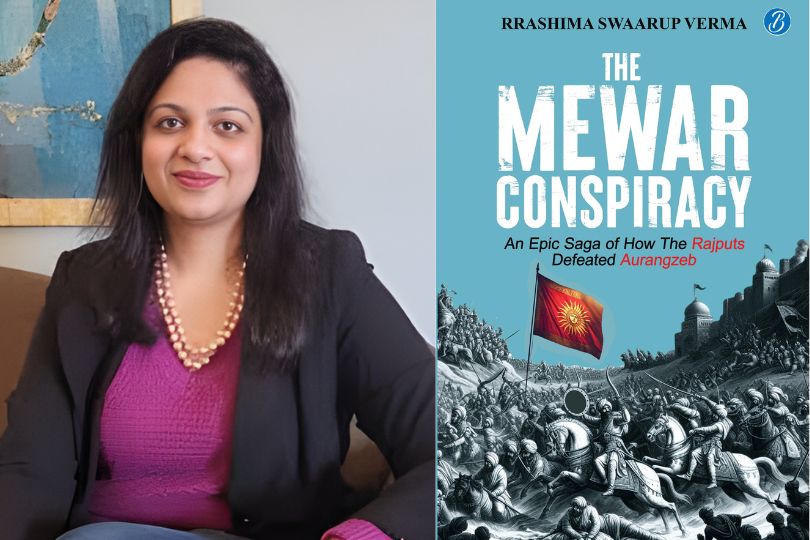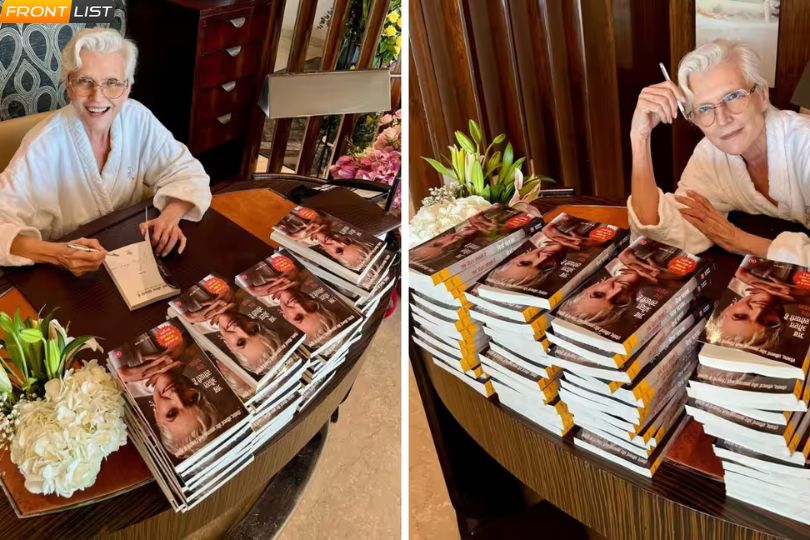Interview with Kapil Gupta Founder of Frontlist Media and Solh Wellness
Kapil Gupta shares insights on mental wellness, tech-driven solutions, and the importance of personalized approaches for a healthier, balanced life.on Apr 23, 2025
.jpg)
Frontlist: Kapil, you’ve written extensively about mental wellness in In My Head and personal growth in KGism. With the rise of mental health awareness, especially around World Health Day, how do you think society can better integrate mental health practices into everyday life?
Kapil: Mental health is something we all experience in different ways, yet it remains one of the most misunderstood aspects of our well-being. As the author of In My Head and KGism, and through my work at Solh Wellness, I’ve seen three significant challenges that hold us back from truly integrating mental health into everyday life:
Acceptance and Measurability: The first hurdle is acceptance. People hesitate to acknowledge mental health struggles, either due to stigma or a lack of understanding. But beyond just acceptance, the real gap is measurability—how do we track progress in mental wellness? Unlike physical health, where we have clear markers like blood pressure or cholesterol levels, mental health remains vague. At Solh Wellness, we are working to change that by creating structured ways to measure and improve mental well-being.
Availability of Solutions: Finding the proper support is another challenge, even when someone is ready to seek help. Therapy, self-help tools, and support groups exist but are not always accessible or suited to everyone’s needs. Mental health care should be diverse, inclusive, and readily available, just like any other form of healthcare.
Bridging the Gap with Technology: While tech-based solutions are emerging, they still lack a structured way to measure real progress. At Solh Wellness, we’re working to change that—bringing technology-driven solutions that provide mental health support and help people track and understand their mental wellness journey. The goal is to make mental health care proactive, accessible, and part of our daily routine—just like how we use fitness apps to track physical health.
At the heart of it all, mental health conversations need to become as normal as talking about physical health. When we stop seeing it as a taboo and start treating it as an essential part of our overall well-being, we create a society where mental wellness is prioritized and genuinely integrated into everyday life.
Frontlist: As the founder of multiple ventures, including Solh, which focuses on mental wellness, what inspired you to explore this field more deeply? And how do you manage to balance your entrepreneurial pursuits with your writing?
Kapil: A simple yet powerful realization inspired me to dive into the mental wellness field—while the world was grappling with COVID-19, another crisis was silently unfolding. I call it the mental wellness pandemic. The aftereffects of COVID-19 weren’t just physical; they left a lasting impact on people’s minds. Anxiety, stress, and emotional struggles skyrocketed, yet mental health didn’t receive the same level of attention as physical health. That gap, that lack of structured support and awareness, pushed me to take action and build something meaningful—Solh Wellness.
Balancing my entrepreneurial ventures with writing has always been about passion and purpose. Writing isn’t just something I do—it’s an extension of how I process and share ideas. Whether through my books, In My Head and KGism, or my work at Solh, my focus has always been on bringing clarity to complex issues, personal growth, or mental wellness. The key to managing both is simple: I don’t see them as separate. Writing fuels my entrepreneurial vision, and my ventures give me real-world experiences to write about. It’s all connected, and that’s what keeps me going.
Frontlist: You’ve said that your books challenge conventional wisdom—KGism is all about thriving without turning into a monk, and In My Head dives deep into mental health. How can people apply the lessons in your books to live a more balanced and healthy life, both mentally and physically?
Kapil: First, my books aren’t about giving you a “success mantra.” They’re not telling you how to live or what to do. They’re my interpretation of life—how I see things and navigate the world. I don’t expect anyone to follow them unthinkingly. Instead, I offer a different perspective and an alternate way of thinking. If it makes sense to you and fits your system, beliefs, and structure, take it. If not, that’s completely fine too.
KGism is all about thriving without turning into a monk. It’s about challenging the idea that success means sacrificing everything else. You can still chase your ambitions, enjoy life, and not lose yourself. In My Head goes deep into mental wellness, breaking the silence around mental health and offering a way to understand it better.
So, if you ask me how to apply my books to life, my answer is simple—don’t try to use them. Just read, think, and see if anything clicks. My books aren’t about telling you what to do; they’re about helping you find your own Do You mantra—a way of living that works for you.
Frontlist: You’ve worked with various industries, from digital marketing to wellness. In your opinion, what role does the publishing industry play in promoting global awareness of mental health, and how can authors help shape a more compassionate future through their words?
Kapil: Right now, in the mental health space, a huge part of the work being done is actually happening through authors and the publishing ecosystem. Whether it’s self-help books, personal stories, or even fiction that subtly addresses mental health themes, authors have played a massive role in shaping the conversation.
Books have a unique power—they don’t just inform; they make people feel. They allow readers to see themselves in someone else’s story, find words for emotions they couldn’t express, and realize they’re not alone. That’s why publishing is vital in promoting global mental health awareness. It’s not just about research and statistics; it’s about storytelling, shared experiences, and making mental wellness a conversation rather than a taboo.
I expect this role to grow even further. The more we write, the more we talk, the more we share—this is how mental health will become a normalized part of everyday life. As authors, we have the responsibility to keep pushing that forward, to create a world where people don’t just survive mentally but truly live.
Frontlist: You advocate for equality through your writings and entrepreneurial ventures. How can we apply the principles of 'New Age Equality' to improve the global approach to health, particularly mental health?
Kapil: New Age Equality isn’t just about treating everyone the same—it’s about ensuring equal access to opportunities, resources, and care, including mental health. The key to improving global mental wellness is leveraging technology to make support ubiquitous, affordable, and available 24/7 solution.
Currently, mental health services are often limited by geography, cost, and availability. Traditional therapy and wellness solutions can be expensive, scarce, or difficult to access. Removing these barriers is essential to achieving true equality in mental health care.
Technology plays a crucial role in breaking down these barriers. AI-driven self-help tools, digital communities, and remote access to professionals make mental wellness support accessible anytime, anywhere. The goal is to ensure that anyone who needs help can get it—without financial, social, or logistical constraints.
This is the vision behind platforms like Solh Wellness, which aim to make mental health support as seamless as using a fitness app. By integrating mental wellness into daily life without stigma or barriers, we move closer to a future where care is truly inclusive and accessible to all.
Frontlist: What do you think is the biggest misconception people have about achieving mental wellness? And, in light of World Health Day, what simple steps would you recommend for someone looking to start their journey toward better mental health today?
Kapil: The biggest misconception about mental wellness is that there’s a one-size-fits-all solution. People often believe that if something works for them—meditation, therapy, exercise, or a specific routine—it must be the answer for everyone. But the truth is, there are 8 billion people on this planet and 8 billion ways to approach mental wellness.
Mental health is deeply personal. What works for one person might not work for another, and that’s completely okay. Some find peace in meditation, others in physical activity, art, social connections, or even structured therapy. The key isn’t to find the answer but to find your answer.
On this World Health Day, if someone wants to start their journey toward better mental health, I’d recommend three simple steps:
Self-Awareness: Understand yourself. Pay attention to what makes you feel good, what drains you, and what helps you reset. Mental wellness begins with recognizing your patterns.
Experiment and Personalize – Don’t force yourself into a rigid solution. Try different approaches—maybe mindfulness, journaling, talking to someone, or changing your daily habits. Find what resonates with you.
Make Support Accessible: Whether through technology, communities, or professional help, ensure you have easy access to the tools and people who can support your mental wellness journey. This is precisely why we built Solh Wellness—to provide customizable, tech-driven solutions that adapt to individual needs rather than forcing a fixed approach.
Mental wellness isn’t about following a rulebook. It’s about creating a playbook that fits your life, challenges, and healing method.



.jpg)






.jpg)

.jpg)


.jpg)
.jpg)










Sorry! No comment found for this post.